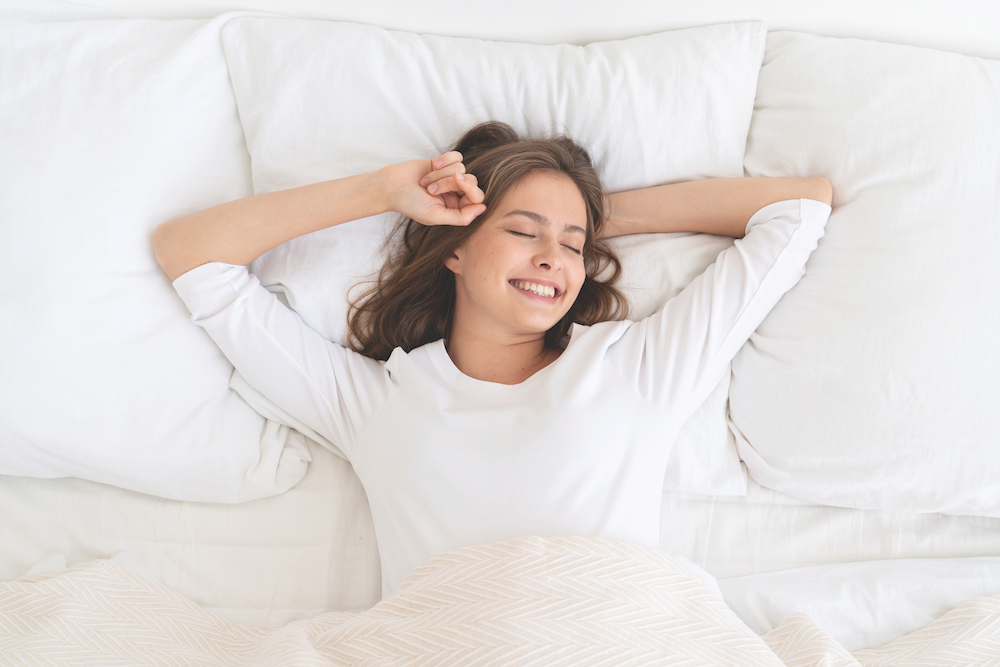It is important for us all to learn how to keep our minds and bodies healthy. Learning healthy living skills can help manage all the stresses in life. Below, CHOC shares strategies to help prevent problems with depression, anxiety, and other difficult mental health symptoms. For those who have mental health symptoms already, these strategies can help manage these and lessen some of the challenges they may face.
Sleep
Lack of sleep can lead to some of the same symptoms as mental health problems, such as issues with concentration, being tired (fatigued), or low mood. For children who have a mental health diagnosis, too little sleep can make it worse.
 People are often surprised how much sleep children need at different ages. Most children don’t get as much sleep as they need.
People are often surprised how much sleep children need at different ages. Most children don’t get as much sleep as they need.
Infant 14 – 15 hours
Toddler 12 – 14 hours
Preschool 11 – 13 hours
School age 10 – 11 hours
Adolescents 9.5 hours
If sleep is a problem, there are some behavior changes that can help to make sleep easier, called “Sleep Hygiene.” These can be useful to try as a first step.
Diet/Nutrition
Children’s and adolescent’s bodies continue to grow. Their bodies need a variety of different foods, including vegetables, fruits, protein (which can be meat or plant-based) and carbohydrates. When people are feeling depressed or anxious, they often crave foods that are high in carbohydrates, sugars and/or fat (donuts, chips, cookies, etc.).
In the end, however, these foods end up leaving kids feeling more depressed and anxious as their bodies process those foods. Having a more balanced diet (any food is okay, but in moderation) will help children feel more comfortable and energetic.
Social Media
Adolescents may seem attached to their phone and social media (Snapchat, Facebook, Instagram, Tik Tok). Social media can help teens connect with others and develop communities, but it can also have a downside. In fact, 43% of adolescent girls say they couldn’t go a whole day without their phones. Unfortunately, there is some evidence that too much social media use can lead to increases in feeling down and/or anxious. Teens can sometimes walk away feeling much worse about themselves.
It is important for parents to monitor children’s and teens’ use of social media and talk to them about how they feel after using it. Don’t be worried about limiting their usage if you see it causing problems.
 Smoking/Alcohol Use/Drug Use
Smoking/Alcohol Use/Drug Use
Sometimes teens (and even tweens) can believe that smoking, drinking and/or drug use makes them feel better and helps them cope. Most research suggests that all of these can cause more problems than they solve, especially for children with mental health diagnoses. Be aware of whether your children are using these behaviors to cope and try to stop these behaviors as soon as possible and help them to learn healthier coping strategies.
Next: 'Teen Mental Health: Broadening the Definition of Health'
Article: The Power of Sleep

